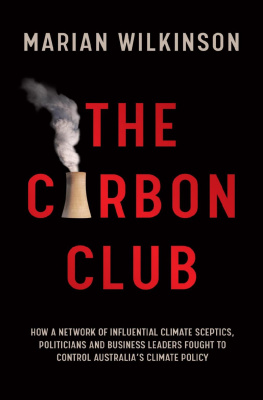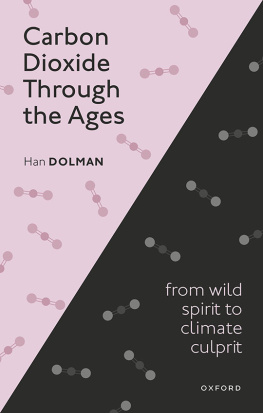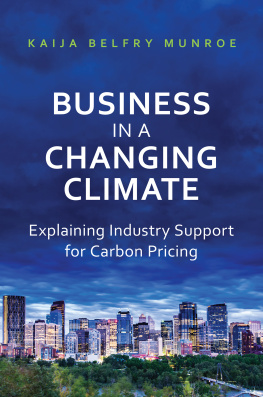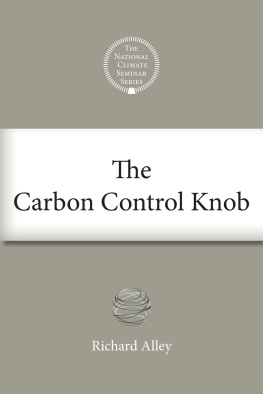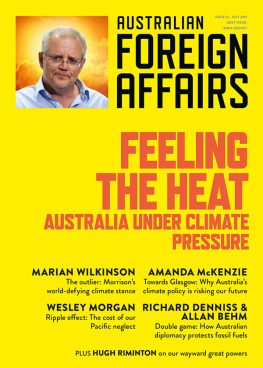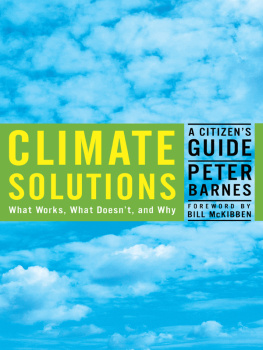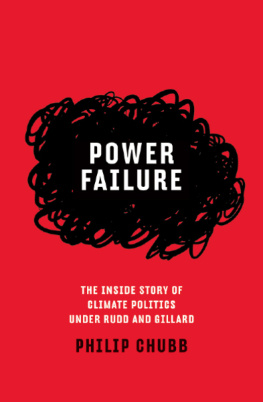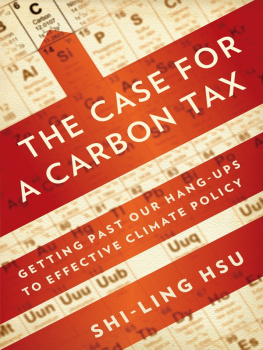| The Carbon Club : How a Network of Influential Climate Sceptics, Politicians and Business Leaders Fought to Control Australia's Climate Policy (2020) |
| Wilkinson, Marian |
|
As the climate crisis threatens more extreme bushfire seasons, droughts and floods, many Australians are demanding their leaders answer the question : 'Why didn't you do something?'.
The Carbon Club reveals the truth behind Australia's two decades of climate inaction.
It's the story of how a loose confederation of influential climate-science sceptics, politicians and business leaders sought to control Australia's response to the climate crisis.
They shared a fear that dealing with climate change would undermine the nation's wealth, jobs and competitive advantage - and the power of the carbon club.
Central to their strategy was an international campaign to undermine climate science and the urgency of the climate crisis.
The more the climate science was questioned, the more politicians lost the imperative to act.
The sustained success of the Carbon Club over two decades explains why Australian governments failed to deal with the challenge of climate change.
But at what cost to us and the next generation?
One of Australia's most respected investigative journalists, Marian Wilkinson has tracked the rise and rise of Australia's Carbon Club in brilliant detail, with extraordinary access to key players on all sides.
The result is a book that is both essential and disturbing reading.
MARIAN WILKINSON is a multi-award-winning journalist with a career that has spanned radio, television and print.
She has covered politics, national security, refugee issues and climate change as well as serving as a foreign correspondent in Washington DC for the Sydney Morning Herald and The Age. She was a deputy editor of the Sydney Morning Herald, executive producer of the ABCs Four Corners program and a senior reporter with Four Corners.
As environment editor for the Sydney Morning Herald, she reported on the rapid melt of Arctic sea ice for a joint Four CornersSydney Morning Herald production that won a Walkley Award for journalism and the Australian Museums Eureka prize for environmental journalism. She also covered the UN climate conferences in Bali and Copenhagen.
As a member of the International Consortium of Investigative Journalists (ICIJ), she reported on the Panama Papers and the Paradise Papers for Four Corners.
She has written several books, including the political biography The Fixer, on former Labor powerbroker Graham Richardson, and Dark Victory, on Australias response to asylum seekers, which she co-authored with David Marr.
In 2018 she was inducted into the Australian Media Hall of Fame.
OTHER BOOKS BY MARIAN WILKINSON
The Fixer
Dark Victory (co-authored with David Marr)

First published in 2020
Copyright Marian Wilkinson 2020
All rights reserved. No part of this book may be reproduced or transmitted in any form or by any means, electronic or mechanical, including photocopying, recording or by any information storage and retrieval system, without prior permission in writing from the publisher. The Australian Copyright Act 1968 (the Act) allows a maximum of one chapter or 10 per cent of this book, whichever is the greater, to be photocopied by any educational institution for its educational purposes provided that the educational institution (or body that administers it) has given a remuneration notice to the Copyright Agency (Australia) under the Act.
Allen & Unwin
83 Alexander Street
Crows Nest NSW 2065
Australia
Phone: (61 2) 8425 0100
Email:
Web: www.allenandunwin.com

ISBN 978 1 76087 599 2
eISBN 978 1 76087 435 3
Internal design by Philip Campbell Designs
Index by Garry Cousins
Set by Midland Typesetters, Australia
p>
For Matthew,
with love and thanks
CONTENTS
I ALWAYS EXPECTED the damaging impacts brought on by a hotter planet would ratchet up in my lifetime. For years Id spoken to so many scientists, reported on so many jolting changes, from the melting of the Arctic sea ice to the bleaching of the Great Barrier Reef, that this seemed inevitable. But even I was surprised by what happened on the eve of the new decade.
Bushfires are nothing new. Australia is the land of droughts, flooding rains and fire. But the bushfires we saw in 2019 and into 2020 were different. The length of the fire season, the intensity and destructiveness of the fires, fitted a pattern climate scientists had been predicting for years.
The warning signs were there that winter. My brother-in-law with the volunteer Rural Fire Service in the Northern Rivers region of New South Wales was already getting call-outs in July. The long drought, the tinder-dry conditions, the higher temperatures all meant an early start to the fire season. As the weeks went by, the conditions turned from bad to worse in small towns and communities spread across his area. As I sat at my desk in Sydney, my sister would phone in with stories of long nights waiting at home, houses gone up in flames, a tea-tree plantation destroyed, jobs lost and, tragically, lives too.
At the same time, I was also, weirdly, monitoring fires on the other side of the world. That July my husband was canoeing through the Arctic Circle on the adventure of a lifetime. He and his party were paddling down the Porcupine River from Canada into Alaska, spotting moose and bear and camping on the riverbank. But halfway through their journey I got a nervous satellite text asking me to check on wildfires coming their way. They had no internet and were surrounded by smoke. They were worried the village of Old Crow where they were heading had gone up in flames. When I finally spoke to the local police officer, I discovered the village was safe and the thick smoke was blowing in from Alaska, where huge wildfires were burning across the state. That July was the hottest month Alaska had ever recorded. Their fire season too had started early and was more severe than usual. And it struck me acutely that the warnings I was seeing from former fire chiefs in Australia were not academic; fire seasons in North America and Australia, once distinct, were now overlapping. Sharing resources in our fire season would soon be that much harder.
By the time the family all got together in early summer in Sydney, our city was blanketed by smoke from bushfires burning to the west and north. The air quality hovered between poor and hazardous. Even at the beach there was no escape, as we swam out through waves littered with burnt leaves and ash. But the worst was yet to come. New Years Day 2020 brought news of unforgettable devastation from around the country. We spent our time glued to our phones, to the radio and TVand trying to call friends caught up in the fires.
For many Australians, politics and science collided that day. Prime Minister Scott Morrison, who once held up a lump of coal in parliament, could no longer avoid the words climate change. When he ordered the navy to evacuate thousands of summer holidaymakers sheltering on beaches from blazing fires and called out 3000 defence force reservists to help state authorities, we knew our emergency services had been stretched beyond their capacity.

